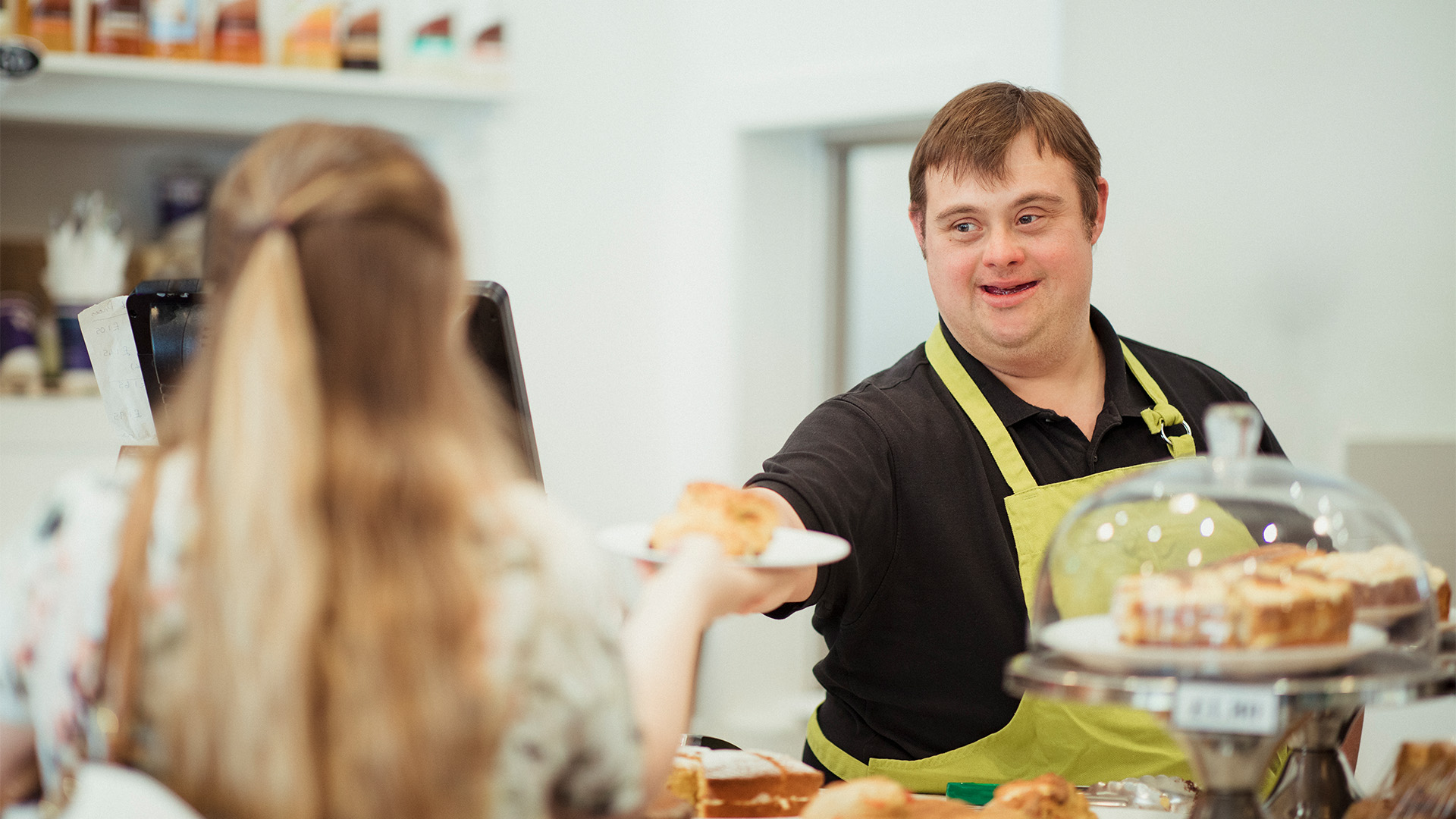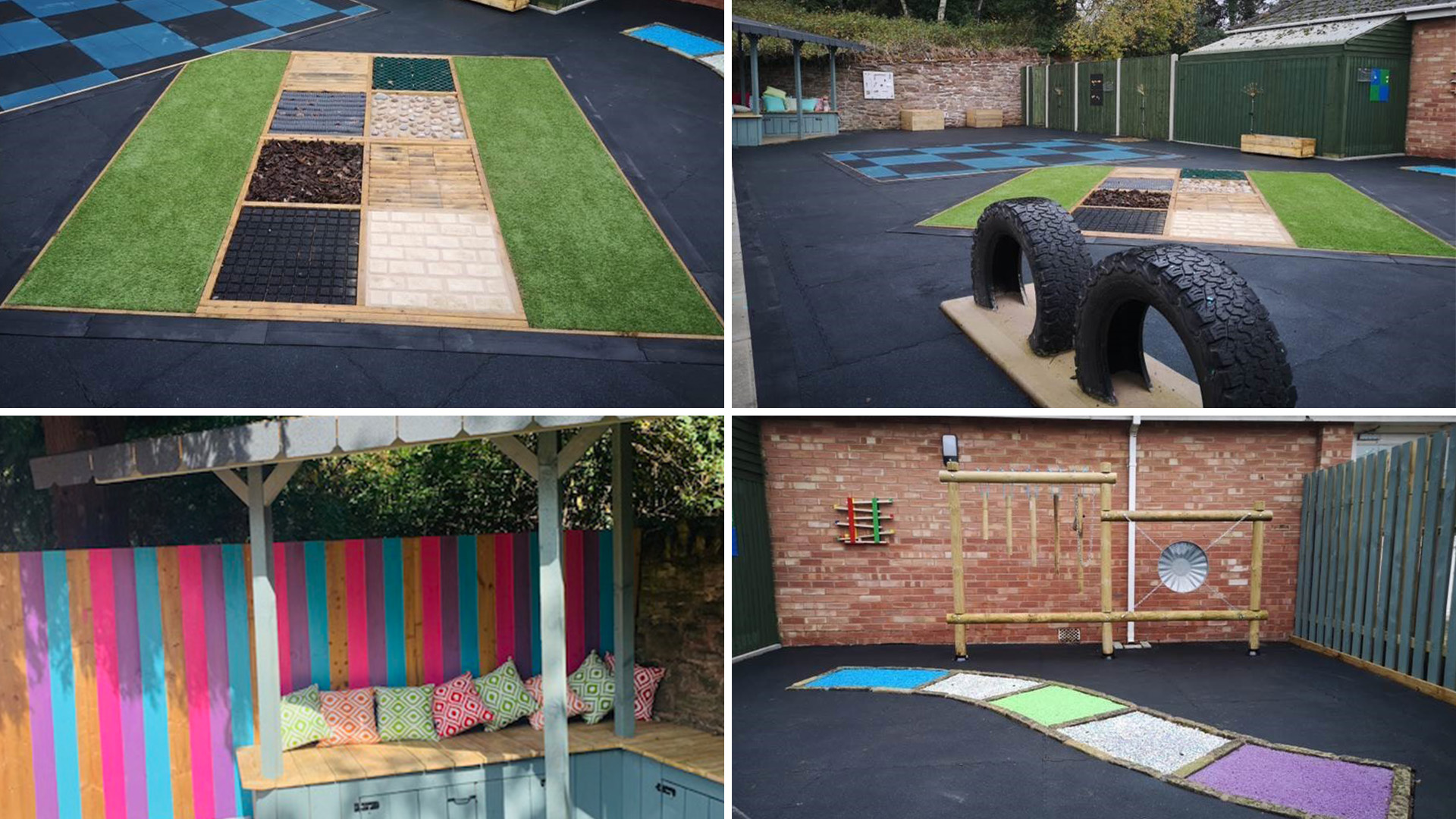About this location
Priory Burston House is located in the historic market town of Diss, near the border of Suffolk, and nestled in the valley of the River Waveney. Across rehabiliation and low secure, we provide a specialist learning disability service for male patients aged 18 years and older, who may also have complex mental health needs, including autism and personality disorders.
Services at a glance
Click here to enable this content
Services
Our comprehensive specialist rehabilitation services provide support for people with a primary diagnosis of a learning disability. We can also support those with a secondary diagnosis of autism or mental illness. We align our services with the recommendations of the Joint Commissioning Panel for Mental Health (JCPMH), along with NHSE's published national guidance on meeting the needs of autistic adults in mental health services. We also follow national guidance to support integrated care boards to commission acute mental health inpatient services for adults with a learning disability and autism. 'Building the right support', the national plan for the Transforming Care programme, is also a focus of ours, which ensures our patients are given the highest quality care, to enable an appropriate transition back home or into community services, wherever possible.
We strive to deliver patient-centred, holistic care in order to support our patients to become more independent. Our culture of excellence and quality, alongside our safe, secure and caring environment, allows us to do this.
Ward break down
- Rectory – 8-bedded community rehabilitation ward for males
Conditions treated
We are able to support autistic people and people with a learning disability. We can also support people with the following challenges alongside their primary diagnosis:
- Severe and enduring mental health problems
- Physical health conditions
- A personality disorder
- Depression
- Anxiety
- Bipolar disorder
- Psychosis
- Self-harm
- Sexual offending
- Substance misuse
We are able to support informal patients or those detained under the Mental Health Act (MHA).
Treatment approaches
At Burston House, we offer person-centred support to all of our patients. Our aim is to support people to progress back into the community and least restrictive environment where they can progress and live their life.
Patients will be encouraged to fully engage in the assessment process to identify their needs and aspirations. They will also be encouraged to design their care and treatment plans in collaboration with the multidisciplinary team (MDT) and external commissioners. The aim of this is produce individualised care with short term objectives, which will be specific, measurable, achievable, realistic and time-bound (SMART). In addition, we ensure that patients have a voice in their care by providing them with the opportunity to lead on their care programme approach (CPA) meetings, participate in community meetings and support in the recruitment process for new staff.
We take a holistic and individualised approach, delivered by our highly experienced and skilled MDT.
We offer:
- Positive behaviour support (PBS)
- Occupational therapy (OT)
- Cognitive behavioural therapy (CBT)
- Dialectical behaviour therapy (DBT)
- Mindfulness
- ACT
- Motivational work
- Foundation work
- Offense-specific support
- Personality disorder symptom reduction
- Consolidation work
- Preparation for discharge
- Relapse prevention
- Teacher offering volunteer and vocational skills
- Activities of daily living (ADL)
- Strengths based outcome measures
People within our service tend to stay with us on a medium-term basis.
Our team
- Hospital director
- Clinical director
- Psychiatrists
- Psychologists
- Nursing (mental health and learning disability)
- Occupational therapist
- Specialist teachers
- A practice nurse for physical healthcare
- Patient finance and support
- MHA administrator
- HR support
- Catering support staff
- Cleaning support staff
- Facilities and maintenance
- Specialist doctor
- Speech and language therapist (SaLT)
- Dietitian
- GPs, dentists, opticians and chiropodists, when needed
We support our staff to engage in appropriate learning disability and autism training, through peer learning and organised sessions. In addition, as a recognised authority on learning disability within the UK, we are also approved to offer learning disability training to specialty registrars in psychiatry.
Therapeutic and community-based activities
We offer a range of therapeutic and community-based activities as part of a full treatment programme. We want to support people to become more confident and independent, preparing them to move through their treatment pathway towards community living.
Our therapeutic and community-based activities include:
- Gardening
- Gym/exercise sessions
- Walks
- Learning and education support
- Woodwork/wood crafts
- Arts/crafts
- Living skills (trips to the community)
- Cooking/kitchen skills
In addition, all patients will be expected to participate in the daily tasks of the house, including cooking, cleaning, laundry and grocery shopping.
Patients will also be able to forge links with their local community and access real work opportunities, including with charitable organisations, which can offer further skill development.
Our facilities and environment
Our garden offers secure fencing, a lawn, sensory items, and planting areas. We also have specialised equipment within the hospital, such as sensory lighting and bean bags, for people to use.
Our bedrooms
All of our bedrooms are single-occupancy and patients are encouraged to personalise their bedrooms while they are staying with us. We provide:
Exclusion profile
Pathways
Priory’s network of high quality facilities enables us to offer joined-up care pathways with our dedicated residential services. We offer programmes which integrate healthcare treatment and therapy, which are tailored according to individual needs, in an appropriate setting. Our strength is that we can provide a seamless transition for the individual as they progress between higher and lower dependency services.
We can support people to step down to Rectory Ward from our internal secure wards, as needed. We can also support step-down patients from other secure services. People can also step up from support from the community if they need a period of stabilisation.
Rectory Ward can support people from all over the UK, due to the specialist nature of the service we provide. Referrals are supported through service development teams for Priory Adult Care and Priory Healthcare to ensure maximum access for patients. Referrals are also supported back to Priory Adult Care, so people are able to step down into the appropriate area and community.
Our secure services offer comprehensive support to people with a primary diagnosis of a learning disability. We also care for those with a secondary diagnosis such as mental health illness and/or autism. We model our service provision on the NHS secure service specification for medium and low secure services. We also follow NHSE's national guidance on meeting the needs of autistic adults in mental health services, along with a focus on national guidance in supporting integrated care boards to commission acute mental health inpatient for adults with a learning disability and autistic adults. This ensures our patients are given the highest quality of care to enable quick and smooth transitions into local services, wherever possible. Our secure service is a member of the Quality Network for Forensic Mental Health Services (QNFMHS), which acts as a framework by which we can continually assess the quality of our care.
We are committed to delivering clinically effective, evidence-based treatment programmes for individuals who require secure care, providing both psychological and physical security.
Ward break down
- Kestrel – 15-bedded ward for males
Conditions treated
We are able to support autistic people and people with a learning disability. We can also support people with the following challenges alongside their primary diagnosis:
- Complex mental health needs
- Behaviours that challenge
- Severe and enduring mental health problems
- Physical health conditions
- Physical health needs
- Psychosis
- Personality disorders
- Self-harm
- Sexual offending
- Substance misuse or forensic addictions
We are able to support informal patients or those detained under the MHA.
Treatment approaches
At Burston House, we offer an individualised, person-centred approach to all of our patients.
Patients will be encouraged to fully engage in the assessment process to identify their needs and aspirations. They will also be encouraged to design their care and treatment plans in collaboration with the MDT and external commissioners. The aim of this is produce individualised care with short term objectives, which will be specific, measurable, achievable, realistic and time-bound (SMART). In addition, we ensure that patients have a voice in their care by providing them with the opportunity to lead on their care programme approach (CPA) meetings, participate in community meetings and support in the recruitment process for new staff.
Our aim is to safely support people staying with us, in the least restrictive environment. We can help to meet their needs and work towards greater independence through step-down.
Our assessment and treatment options are overseen by a full and diverse MDT.
We offer:
- PBS
- Cognitive behavioural therapy (CBT)
- Dialectical behaviour therapy (DBT)
- OT
- Mindfulness
- Acceptance and commitment therapy (ACT)
- Assessment and motivational work
- Foundation work
- Offence-specific support
- Personality disorder symptom reduction
- Consolidation work
- Relapse prevention
- Preparation for discharge and follow-up care
- Teacher offering education and vocational skills and pathway to OCR qualifications
- Activities of daily living (ADL)
- Strengths based outcome measures
People within our service tend to stay with us on a transitional basis.
Our team
- Hospital director
- Clinical director
- Psychiatrists
- Psychologists
- Nursing (mental health and learning disability)
- Occupational therapist
- Specialist teachers
- Social worker
- A practice nurse for physical healthcare
- Patient finance and support
- MHA administrator
- HR support
- Catering support staff
- Cleaning support staff
- Facilities and maintenance
- Specialist doctor
- SaLT
- Dietitian
- GPs, dentists, opticians and chiropodists, when needed
We support our staff to engage in appropriate learning disability and autism training, through peer learning and organised sessions. In addition, as a recognised authority on learning disability within the UK, we are also approved to offer learning disability training to specialty registrars in psychiatry.
Therapeutic and community-based activities
We offer a range of therapeutic and community-based activities as part of a full treatment programme. We want to support people to become more confident and independent, preparing them to move through their treatment pathway towards community living.
Our therapeutic and community-based activities include:
- Gardening
- Gym/exercise sessions
- Walks
- Learning and education support
- Woodwork/wood crafts
- Arts/crafts
- Living skills (trips to the community)
- Cooking/kitchen skills
In addition, all patients will be expected to participate in the daily tasks of the house, including cooking, cleaning, laundry and grocery shopping.
Patients will also be able to forge links with their local community and access real work opportunities, including with charitable organisations, which can offer further skill development.
Our facilities and environment
Our garden offers secure fencing, a patio area with furniture, a lawn, shelter, sensory items, fixed garden gym equipment and planting areas. We also have specialised equipment within the hospital, such as sensory rooms and lighting, bean bags and adjustable kitchen counter tops, for people to use.
Adaptations to facilities can be made, within reason, to support needs on a case-by-case basis, if appropriate.
Our bedrooms
All of our bedrooms are single-occupancy and patients are encouraged to personalise their bedrooms while they are staying with us. We provide:
Exclusion profile
Pathways
Priory’s network of high-quality facilities enables us to offer joined-up care pathways with our dedicated residential services. We offer programmes which integrate healthcare treatment and therapy, which are tailored according to individual needs, in an appropriate setting. Our strength is that we can provide a seamless transition for the individual as they progress between higher and lower dependency services.
We offer an internal step-down pathway to Rectory Ward or to Lombard House, to support with skills prior to discharge. We are connected to Priory Adult Care teams through service development colleagues, who advise on other pathways, dependent on area and needs. We are a national service, due to the specialist nature of our support, and so patients may come in from different areas of the UK. We also work closely with Priory Hospital Mildmay Oaks, and Priory Lombard House.
A message from our site leader

Our purpose is to make a real and lasting difference for everyone we support. We are dedicated to helping people to improve their health and wellbeing and we understand that in order for people to achieve high quality clinical outcomes, they need individually tailored programmes, suiting their specific needs. Our mission is to work in partnership with individuals to achieve their optimum level of functioning, to maximise their quality of life by building on their existing strengths, facilitating the gaining of new skills and promoting personal development. We also enable them to live in the least restrictive environment possible, while maintaining the safety of themselves and others.
Burston House site leader
Comments from our patients and their family and friends
It’s a good place to be. I am able to access the community and there are plenty of activities on-site -
Burston House has been helpful, engagement and treatment is good. I am happy at Burston
Information for family and friends
How do home visits work?
We will facilitate home visits where possible, and provided it is safe to do so, for smooth transition once ready.
What is your visitation policy?
We will support and cater for family and friends visits where possible, around the schedules of the people staying with us. We do ask that arrangements are confirmed with us prior to visits so we can support a positive experience for all.
Will I be involved and kept up to date with my loved one’s care and wellbeing?
We seek to involve families in all aspects of care and support, provided consent is not an issue and it is appropriate.
Will my loved one be able to have a phone or call me?
People staying with us may be allowed to use a mobile phone on the ward, or we can provide support if they need assistance to call loved ones.
What type of things are families expected to provide, and what is provided by the home?
We would expect people staying with us to bring clothing, essential personal items and items that they would prefer to have close for comfort. We do ask that they avoid bringing expensive or bulky items and there is a list of banned items to ensure safety for all on-site.
What are the bedrooms like?
All of our bedrooms are modern and welcoming, and can be adapted to meet individual needs, within reason.
Are external doors kept locked?
Yes; doors are locked for safety reasons and staff are always on hand to support access where appropriate. However, every person staying with us will be individually assessed for any risks to see what security is needed.
What do service users eat and how do meal times work?
All meals are provided and we can cater for all dietary requirements, should people have specific needs. Snacks can also be provided. We have a dietitian to support healthy and appropriate meal planning and we also have a training kitchen for service users to have support with food preparation, in readiness for discharge.
How does laundry work?
We have a laundry room and support will be given to assist people to take care of their own laundry. The hospital will take care of bulky items, such as bedding, and give additional support to those that may need it.
Is there anything they can’t bring or have?
We have a restricted and prohibited items list, which will be sent out prior to admission.
Are pets allowed?
Unfortunately, we cannot support pets to stay at the hospital, in consideration of all those staying with us and the basic practicalities of managing this.
How do activities work?
Everyone has a weekly activities planner/timetable which is discussed and agreed with them to support needs.
Do service users and families have an input into the service user’s care plans?
As a service, we recognise that carers are an important factor when it comes to gaining knowledge about their family member, and providing ongoing support as part of their community discharge plan. We aim to create links with families through carer engagement during the assessment, admission, treatment and discharge processes. We can provide you with our ‘families and friends’ booklet, which contains more information.
What are the car parking facilities?
There is free car parking on-site.
What is the smoking policy? Can service users buy cigarettes?
Burston House is a non-smoking site. Support for smoking cessation is available if patients would like to get help with this.
How is treatment accessed and funded?
We don’t take referrals directly from individuals and families. Instead, the first step will be for you to reach out to the person’s GP so that they can be referred and funded through the correct NHS channel. Depending on the type of support needed, this could include local authority funding, NHS funding, joint funding between the local authority and NHS, or direct payments. Please note, referrals for NHS or local authority funded services must come from a referring organisation.
How to make a referral
Our customer service centre provides 24/7 support for NHS mental health enquiries and referrals. Our customer referral co-ordinators can support you from your first call right through to the enquiry conclusion, providing updates throughout the process. We offer 24/7 crisis referrals, fast access to bed availability and placements, and a single access point for end-to-end enquiry management.





















